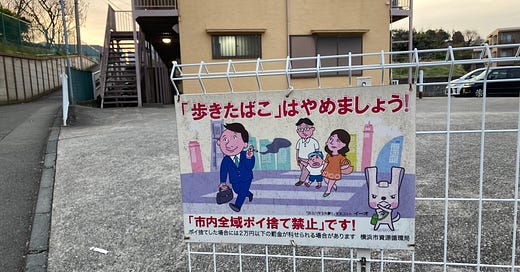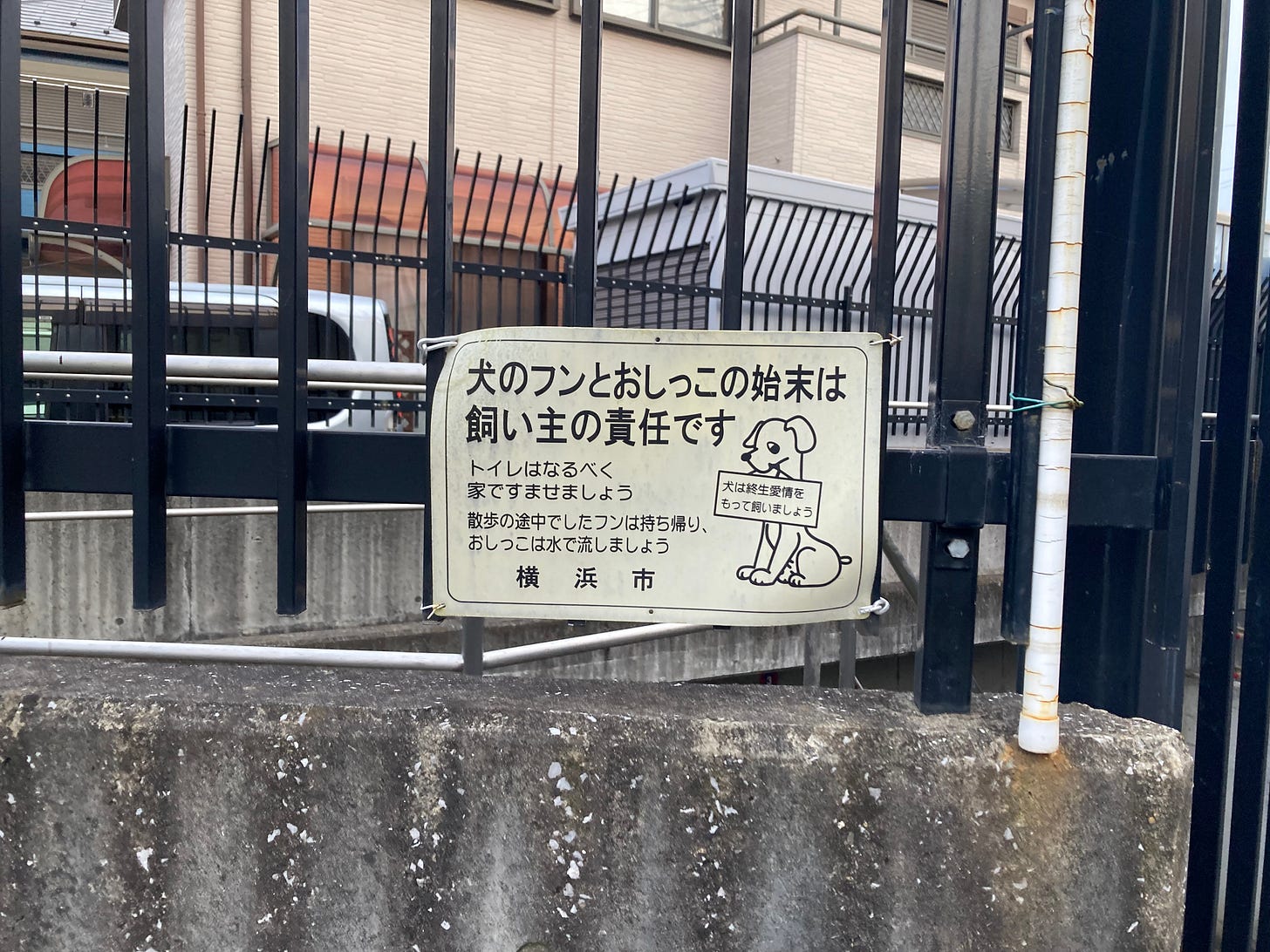Good morning!
Walking around my neighborhood, I’ve found a few signs about good manners and crime awareness. You will see those signs everywhere in Japan. The one above, as you can see, is above smoking. It says, “Please don’t smoke while walking!” and “No littering.” I find it a little puzzling because I think that smoking in public has been banned in Japan. It might be an old sign.
The second one is about cleaning after your dog, which is something that nearly everybody does in Japan. I say “nearly” but I must add I’ve never seen dog poop left behind by a “law breaker".”
Then there are two banners. The one on the right exhorts people to be careful about car theft. The left one reminds people that there’s a Crime Patrol going around the neighborhood.
I recently read T. R. Reid’s Confucious Lives Next Door. Published in 1999, in many respects it’s a rather outdated book that came out just when Japanese society was in the midst of big social and economic changes.
However, it says some interesting things about today’s topic. I’ll quote a few passages at random:
People love rules. I think this is partly because knowing what the rules are in any situation provides social security.
Good manners matter so much to the Japanese that the government has created a whole artistic genre to propagate them: the manner poster. They hang on public walls everywhere, but primarily in subway stations and bus stops. An example: a picture of some thoughtless act (for example, two men talking so loudly on the subway platform that nobody else can carry on a conversation) and a gentle nostrum at the bottom: “Talk quietly and respect the rights of others.”
Also, about school life:
The goals were posted on the walls all over the building. “Don’t waste anything at lunchtime.” “Let's remember the rules and follow them.” That last one was particularly important. Learning to follow rules, to respect authority, was a crucial part of daily education. Just as there is one right way to write kanji, there was one right way to do just about everything. There was one list of school supplies that everybody needed, and that list was sacrosanct. Nothing was left to chance because rules are too important to be left to chance.
It sounds a little like Big Brother, and I don’t agree with certain “totalitarian” aspect of Japanese society, but it seems to work. Indeed, most people follow the rules. And at the end of the day, it’s all about respecting each other and knowing that there are rights but even duties; that freedom does not mean being free to do anything you want; and that my rights end where other people’s rights begin.







Cleanliness and safety were the things I noticed most about Japan when I went (about 30 years ago - yikes!). I don't think compliancy is a bad thing - it shows that people understand that rules are there for a reason and, ultimately, it means that you respect and care for your environment.
When in Japan a young man who took us on a tour said that due to the enormous population and very small amount of land, rules are necessary and they MUST be followed or there would be chaos. The rules were not onerous at all and I agree that it is necessary. Imagine the numbers of people at Tokyo railway stations and linking stations if there was no unspoken rule that everyone walk with a certain amount of space around them at the same speed? In ANY other country, there would be chaos and people being knocked over. We can all learn so much from the manners of the Japanese.